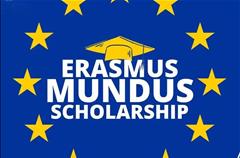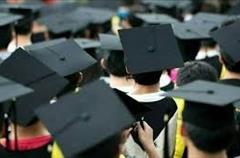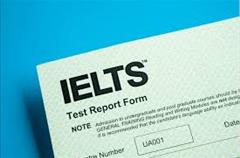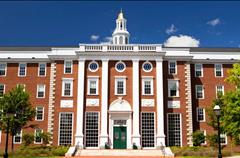Choi stayed up until 3 a.m. prepping her kids for the tests that would determine
whether they made it into one of South Korea's top three universities. In short,
Choi at 49 is a "Daechidong mom," so called after the enclave of Seoul
that is a breeding ground for scholastic achievement.
The Daechidong moms have inspired a dozen books about the phenomenon and have
rekindled a national debate over whether the educational rat race is getting out
of hand.
Choi doesn't think so. "I never regretted giving up work for my children,"
she said.
Her son, who is 20, last year entered Yonsei University, one of South Korea's
top three colleges, and she remains busy shepherding her 17-year-old daughter
from home to public school to the private cram schools that crowd Daechidong's
main street. The girl appears poised for outstanding results in her college entrance
examination next year.
In Korea, graduating from one of the top three -- Seoul National University, Yonsei
and Korea University -- means social status and better job and marriage prospects.
South Korea's prime minister and 12 of his 18 ministers are Seoul National University
graduates.
The centuries-old emphasis on passing tests is rooted in a Confucian emphasis
on social order and conservatism. But like other Asian countries such as Japan
that live by this educational concept, South Korean schools are accused by some
critics of producing good bureaucrats but no creativity.
However, even the critics concede the system has merits; out of 30 nations, including
the United States and the 25 countries of the European Union, South Korea came
first in problem-solving, second in reading and third in science, according to
the Program for International Student Assessment, which tracks student performance
worldwide.
South Korea is also at the cutting edge of genetic research. Its scientists were
the first to clone a dog, first to clone human embryos, and first to create embryonic
stem cells that genetically match injured or sick patients.
But if so, ask the naysayers, how come only one Korean university, Seoul National,
is in the world's top 100, and ranks only 93rd?
Daechidong is a microcosm of a competition that begins in kindergarten. Here cram
schools let out at 11 p.m., and harried, bookbag-laden children rush to catch
the last bus or subway home.
"We definitely improve scores. We get fired if we don't," said Lee Goo-yong,
a private math teacher with 13 years' experience in the Daechidong area. Lee acknowledged
the students he teaches are under great stress, but thinks such pressures are
"natural."
"Cram schools are necessary because they fill the gap and offer something
students desperately need and want," he said.
Still, fearing a widening social gap, the government is considering redistricting
schools to level the playing field and control soaring real estate prices in neighborhoods
with good public schools such as affluent Daechidong.
Authorities are cracking down on unregistered cram schools and tutors who charge
exorbitant fees.
Even a professor of education at top-rated Seoul National suggests the mothers
focus their energies elsewhere.
"They have gone too far, to the level of ignoring their children's identity
as individuals," said Han Soong-hee.
Ko Hyung-sook, a 42-year-old mother of two sons, lives in suburban Seoul and is
staying away from Daechidong.




.gif)

































